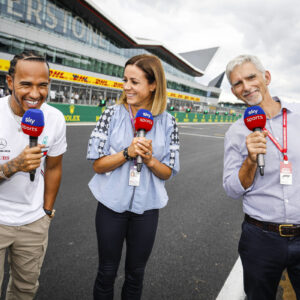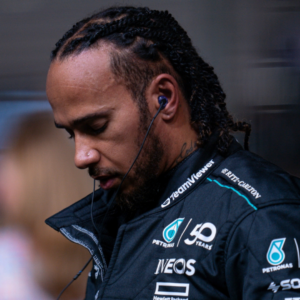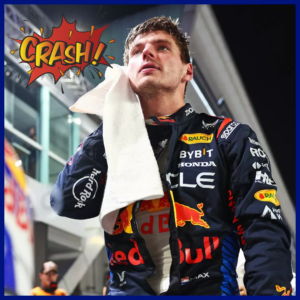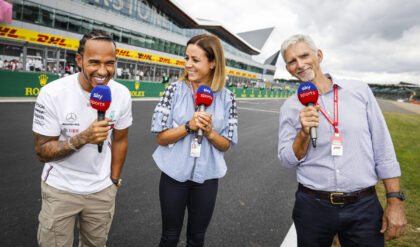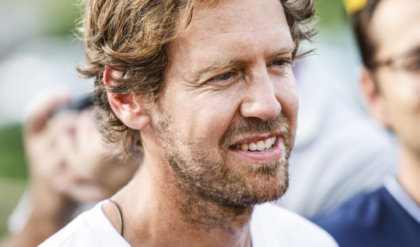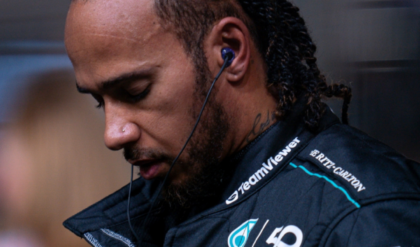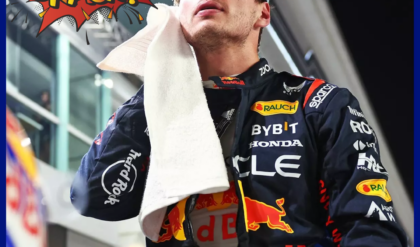Some events in Formula 1 shape the sport for years to come, no matter how much they seem on a knife edge.
Who would have thought, for example, that Max Verstappen would go on to completely dominate three whole seasons of F1 action having beaten seven-time champion Lewis Hamilton on the final lap of the season at the 2021 Abu Dhabi Grand Prix?
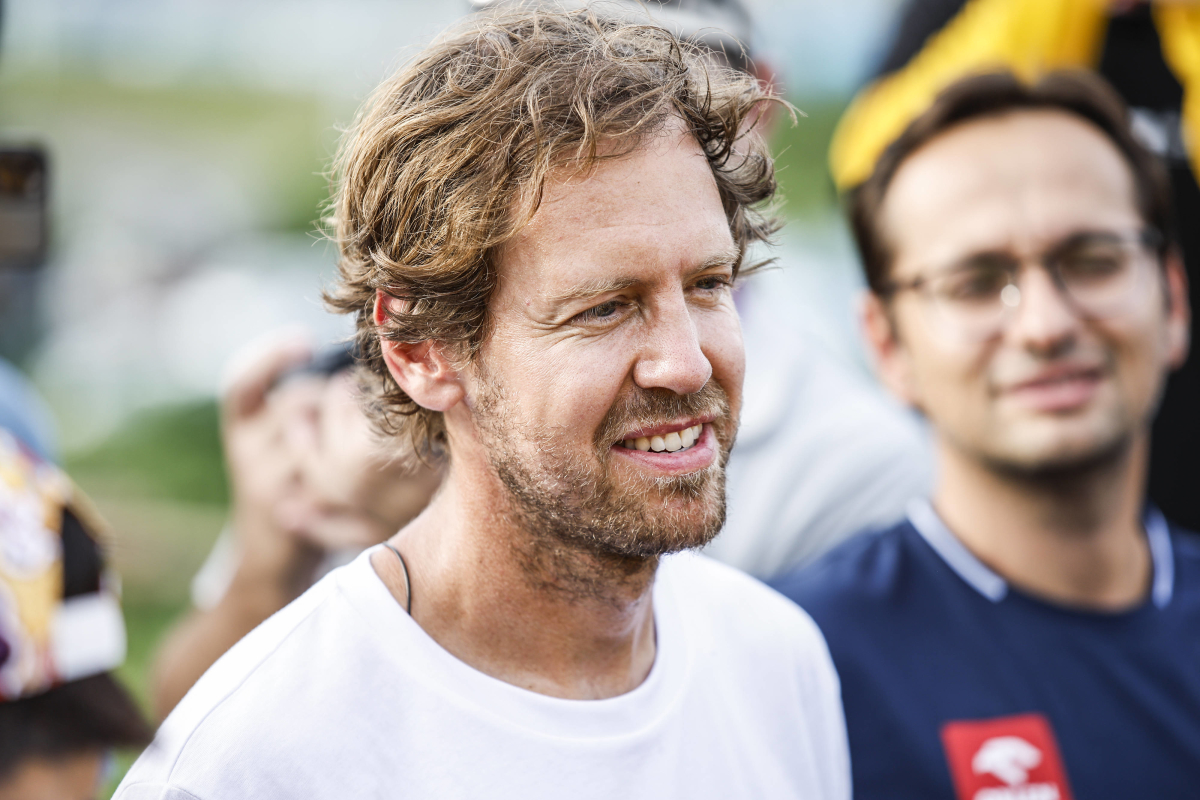
A similarly close-run event at the same track on this day 14 years ago would go on to have similar ramifications for years to come, allowing one driver to dominate with the full confidence of being an F1 world champion.
Sebastian Vettel’s four consecutive world championship titles earned between 2010-2013 had a similar inevitability about them as Verstappen’s dominant era that we are currently experiencing. Same team, same aura of invincibility come race day, but arguably more difficult championship battles.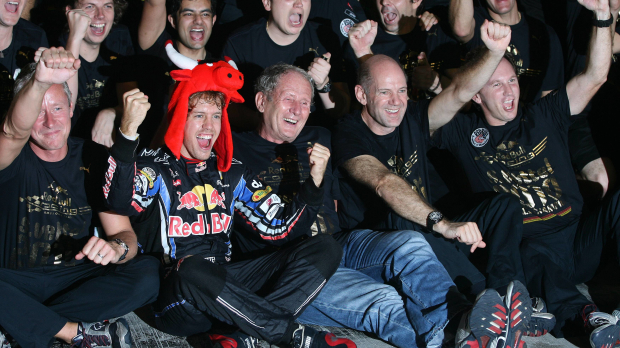 Sebastian Vettel claimed four world championship titles
Sebastian Vettel claimed four world championship titles
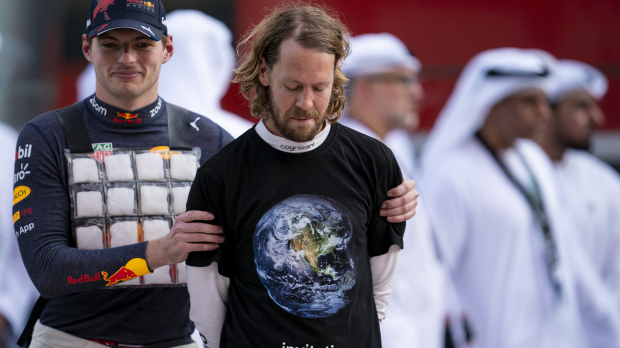 Max Verstappen and Sebastian Vettel’s achievements are often compared
Max Verstappen and Sebastian Vettel’s achievements are often comparedVettel’s 2010 season
That was certainly the case in both 2010 and 2012. Heading into the 2010 season, Vettel was already a five-time grand prix winner, with his late surge in 2009 against Brawn GP and Jenson Button providing Red Bull with hope that they had the real deal.
However, it was his experienced team-mate Mark Webber that arguably made the stronger start to the 2010 season, claiming three pole positions and two grands prix victories in the opening six events of the year.
By the time the season-ending Abu Dhabi GP rolled around, it was Webber who was providing the biggest threat to Fernando Alonso claiming his third world championship title, sitting just eight points behind the Spaniard.
Vettel and future arch rival Lewis Hamilton were an afterthought to claim championship success at the Yas Marina Circuit, with Vettel sat 15 points behind Alonso.
However, it was Red Bull who had benefitted from a far-superior car for much of the 2010 season, making Alonso’s championship lead look vulnerable, despite the Ferrari man already being a two-time world champion.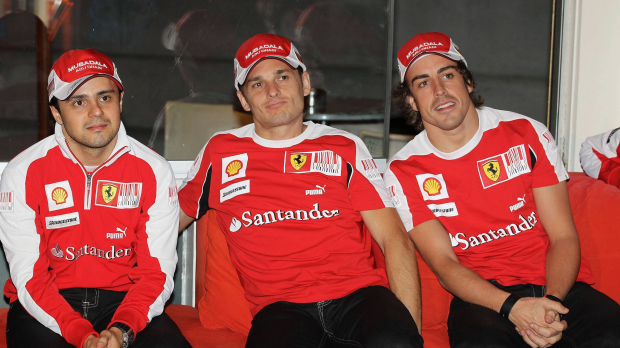 Fernando Alonso was driving with the Ferrari team in 2010
Fernando Alonso was driving with the Ferrari team in 2010
The 2010 Abu Dhabi GP
Having claimed his 10th pole position of the season, Vettel’s chances of championship success dramatically improved, with Alonso back in third, and fellow Red Bull driver Webber only able to qualify down in sixth. Hamilton separated Vettel and Alonso in second.
Vettel led the pack away safely, with Alonso losing a position early on to Button, but a huge Michael Schumacher crash with Force India star Vitantonio Liuzzi on lap one led to an early safety car, with drivers and teams stuck as to whether to pit early and make use of the safety car.
Vettel stayed out, and continued to lead the race. Renault driver Vitaly Petrov’s decision to stop during this time would later have huge championship consequences, however.
With Alonso stuck down in fourth following the restart, and Webber unable to make any progress down in sixth, the two main championship contenders both decided to stop early, within a few laps of each other, with Alonso coming out ahead of the Australian but way down the order in 13th.
Progress through the field was slow for both drivers, however, and when Alonso came up behind Petrov, he spent the rest of the race trying, and failing, to get past the stubborn Russian racer.
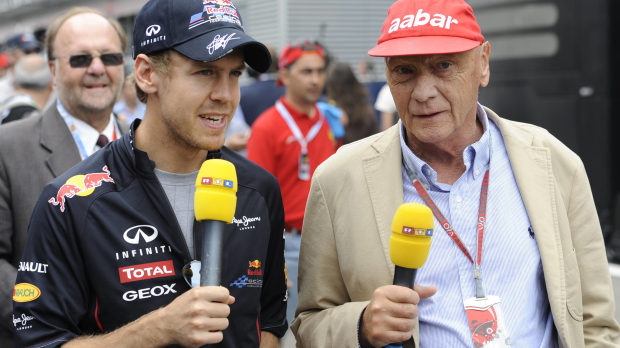 Sebastian Vettel’s career blossomed in 2010
Sebastian Vettel’s career blossomed in 2010Vettel crowned world champion
The German did exactly that, leading the race from start to finish and winning by a margin of over 10 seconds to Hamilton.
With Alonso failing to finish in the top four, Vettel became the youngest ever F1 champion at the age of just 23 years and 134 days.
The stunning result came from nowhere and would shape the German legend’s career for many years to come, going on to add title number two, three and four in rapid succession, in similar style to Verstappen after his unlikely success at the 2021 Abu Dhabi GP.
Vettel retired in 2022, having amassed four titles, 53 race victories and 122 podiums.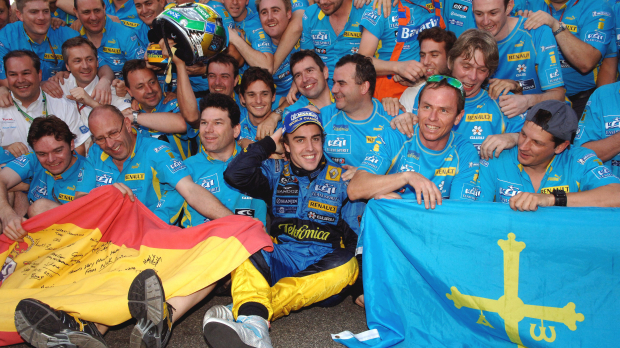 Fernando Alonso has not won a world championship title since 2006
Fernando Alonso has not won a world championship title since 2006
Alonso left ruing missed opportunities
One driver who is still racing in 2024, however, is Alonso, who at 29 was no spring chicken during the 2010 championship battle, but is likely to race past 45 thanks to a new contract recently signed with his Aston Martin team.
Alonso is still stuck on two world titles, with that harrowing day at the 2010 Abu Dhabi GP doing nothing to enamour him with the expectant Ferrari faithful.
Further failed championship bids in 2012 and 2013 would later see Alonso leave the Italian outfit, and he has not claimed a race victory since the 2013 Spanish GP.
With two titles sealed by the time he was 25, who knows, had he gone on to beat Vettel in 2010, would it have been Alonso who would’ve had the momentum to go on and claim seven world titles like Hamilton has?
We will never know, but this particular Sunday afternoon was the catalyst for Vettel to go on to have a better career than the Spanish F1 legend, claiming more championships, grand prix victories and podiums than Alonso.
Although, let’s not rule Alonso out just yet shall we? Particularly with his Aston Martin team signing design guru Adrian Newey from next season, the man who made it all possible for Vettel, Red Bull and later Verstappen.
News
”They will miss him very much”: F1 legend announces SHOCK exit
A British F1 legend has announced their shock exit for 2025 in a recent social media post. The UK has produced multiple world champions that have gone on to define their respective eras in F1 including Lewis Hamilton, Jim Clark, James…
Lewis Hamilton reveals he no longer wants to invest in Mercedes
Hamilton details Mercedes SPLIT as new focus revealed Photo: © IMAGO Seven-time Formula 1 world champion Lewis Hamilton has revealed he no longer desires to invest in Mercedes, with a new focus taking priority as his move to Ferrari nears. The Brit is set to…
FIA accused of trying to sabotage Max Verstappen in Brazil by former F1 team boss
FIA accused of trying to sabotage Max Verstappen in Brazil by former F1 team boss In Picture: Max Verstappen of Red Bull Racing – Source: Getty Former F1 team owner Eddie Jordan slammed the FIA after the delayed red flag…
Brad Pitt and Angelina Jolie Set to Face-Off as Nasty Court Battle Over Miraval Winery Heads to Trial: ‘It’s Going to Get Even Uglier’
Brad Pitt and Angelina Jolie’s nasty $350 million court battle has taken a new turn as it’s now heading to trial. hotnewstodayus can reveal the exes are set to come face-to-face after a judge tossed out the actress’ motion to dismiss her…
Injured Harrison Butker’s Wrong Kicking Technique Exposed as Andy Reid Demanded to Make Big Change by Ex-NFL Punter
It’s that time of the year when the Kansas City Chiefs head to the Highmark Stadium to play against the Buffalo Bills. But there’s one small hiccup. Harrison Butker is injured, and the Chiefs are in a panic. So much so, that they reached out…
Chiefs Superstar Demands ‘Respect’ as Andy Reid Makes Disappointing Announcement Before Bills Game
You know that when you’re nine and zero, you are flying! But that’s when you have got to keep your wits intact and keep doing what you have been doing to pass each game week. And that’s what the Chiefs have been…
End of content
No more pages to load
